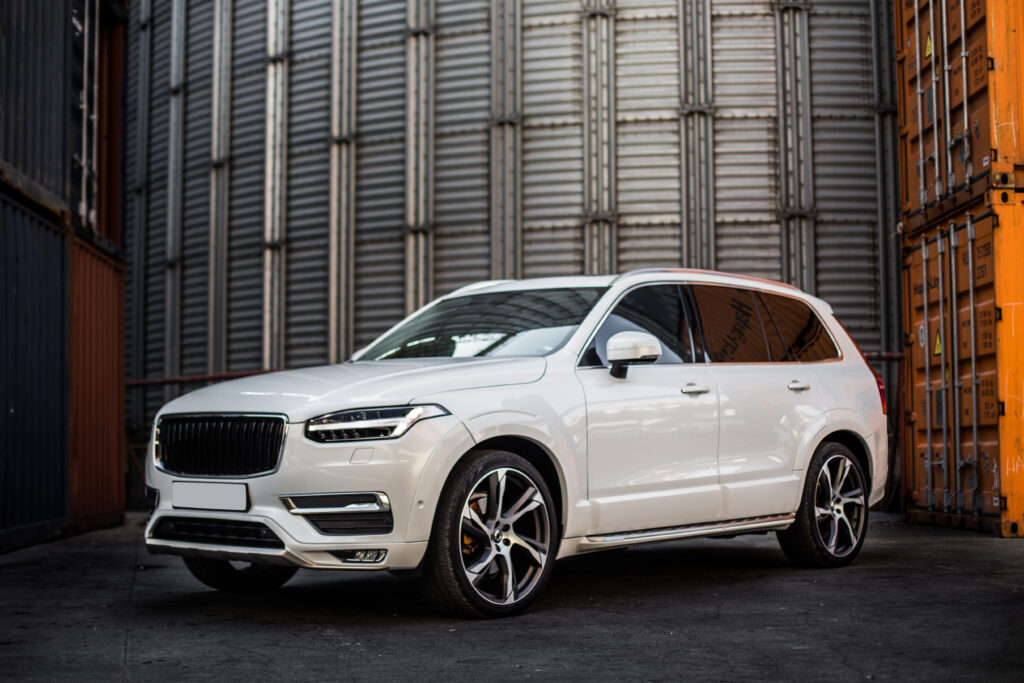Whether you’re thrifty or a bit more extravagant, everyone loves a good deal, especially when it comes to buying a vehicle. We all aim for the best quality at the lowest price, and for those seeking significant savings, the idea of purchasing a used car with a rebuilt title might come up. But are these vehicles a smart buy, or a trap to avoid? Let’s dig into the details.
The used car market is thriving these days, offering fantastic deals alongside cautionary tales about buying from the wrong seller. Terms like “salvage title cars,” “rebuilt title cars,” and even “title washing” are part of the conversation. If you’re hunting for a bargain, you might wonder: should you consider buying a rebuilt car?
In this article, we’ll cover:
- What a rebuilt or salvage title means.
- Why rebuilt cars are usually priced lower.
- Whether you can insure a rebuilt title car.
- When buying a rebuilt or salvage car is a good idea and how to avoid getting a lemon.
- The potential downsides and whether the deal is worth the risk.

Here’s what you need to know about cars with rebuilt or salvage titles.
Rebuilt Title vs. Salvage Title: What’s the Difference?
The key difference between these two terms lies in the vehicle’s condition. A “salvage” title is given to a car before repairs when it’s deemed unroadworthy, while a “rebuilt” title is issued after the necessary repairs and restorations have made the vehicle roadworthy again.
What Is a Rebuilt Car and What Does a Rebuilt Title Mean?
- A “rebuilt car,” sometimes called a “rebuilt title car” or “reconstructed car,” is a vehicle that was previously considered a total loss by an insurance company due to damage from an accident, flood, theft, or other incidents. After being deemed a total loss, the car undergoes extensive repairs to restore it to a drivable condition. Once these repairs are completed and the vehicle passes a detailed inspection, it receives a rebuilt title, signifying that it has been restored from its salvage state.
- A “salvage” title, on the other hand, refers to a vehicle that an insurer has labeled a total loss, often due to severe damage, theft, fire, flood, or a major accident. When a salvage vehicle is repaired and certified for road use again, its title is updated to reflect its “rebuilt” status.
- A “branded title” is a broader term referring to a car title that is no longer clean. It could indicate a salvage, rebuilt, junk, or flood-damaged vehicle.
Pros and Cons of Buying a Car with a Salvage Title
Salvage title cars can offer serious bargains. In many provinces, a stolen car that isn’t recovered within 21 days is declared a total loss, and the insurer pays out the owner. If the car is eventually found undamaged, it still carries a salvage title. Similarly, vehicles involved in accidents that haven’t been fully repaired can be a good deal if the damage is mainly cosmetic.
However, buying a salvage title car comes with risks. There’s a high chance of hidden damage that you won’t discover until you start repairs. Some salvage cars may never be roadworthy again. Before a salvage vehicle can be licensed and insured, it must pass inspections by a licensed technician, including a structural integrity check, and often it doesn’t pass on the first try.
Pros and Cons of Buying a Car with a Rebuilt Title
Rebuilt cars can also be a good deal if the conditions are right. Since these cars have already been repaired and certified, you can avoid the uncertainties that come with salvage cars. A rebuilt title car can typically be purchased for 20% to 50% less than a similar vehicle with a clean title.
However, the trade-off is that the car’s value is also lower than a comparable vehicle with a clean title, making it less desirable. The quality of repairs is another concern—were high-quality parts used, or were corners cut with salvage or low-grade materials? Was it a flood-damaged car now prone to premature rust? The risks are real.
Financing and insurance can also be problematic. Many lenders are hesitant to finance rebuilt or salvage vehicles due to their diminished value. Insurance can be hard to secure and may be costly for the limited coverage offered.
Insurance on Rebuilt Title Cars
You can insure a rebuilt title car, but there are a few things to keep in mind:
- Limited Options: Not all insurers are willing to cover rebuilt title cars. You may need to shop around to find coverage.
- Higher Premiums: Insuring a rebuilt title car can be more expensive due to the higher risk associated with its history.
- Coverage Types: While liability coverage is usually available, comprehensive and collision coverage may be harder to obtain.
- Detailed Inspection: Insurers may require a detailed inspection of the rebuilt car before offering coverage to assess its condition.
- Documentation: You’ll likely need to provide detailed documentation of the repairs, including receipts and inspection reports.
- Provincial Regulations: Insurance regulations vary by province, so it’s important to understand the specific requirements for rebuilt title cars in your area.
While insuring a rebuilt title car can be challenging and more expensive, it is possible. Thoroughly research and contact multiple insurers to find the best coverage options.

How to Determine if a Rebuilt Title Car is Right for You
If you’re considering a car with a branded title, take a moment to ask a few crucial questions before making a decision:
- “Can I see the receipts?” If the current owner handled the repairs, ask for a detailed breakdown to assess the quality of the work and parts used.
- “Where were the repairs completed?” Ensure the repairs were done at a reputable shop. If a backyard mechanic did the work, proceed with caution.
- -“Have you insured it as a branded title?” If the current owner has insured the car, it’s a good sign that it’s insurable. If not, it’s a red flag.
- “Was there frame or powertrain damage?” These are costly repairs that are often skimped on. If the frame or engine was damaged, be very cautious.
- “Have the repairs been estimated?” If considering a salvage car, check if repair estimates are available. Factor in potential hidden damage costs.
Even if you get satisfactory answers, it’s wise to have a trusted mechanic inspect the car to ensure the repairs were done well. Multiple test drives can also help you assess how the car handles and whether it runs smoothly without any strange noises.
Avoiding Title Washing Scams
Unfortunately, some sellers engage in “title washing,” a fraudulent practice where a car’s branded title is removed by moving and insuring it out of province, then selling it with a clean title. This illegal process hides the car’s history and scams buyers out of thousands of dollars.
To avoid title washing scams, always pull a vehicle history report, such as from Carfax, before buying. This report will show if the car was ever declared a total loss or involved in any serious accidents.
To check a car’s title, use the 17-digit Vehicle Identification Number (VIN) found on the driver’s side of the dashboard, visible through the windshield. Enter the VIN at Carfax to get a detailed history of the vehicle, including any title branding, repairs, and red flags.
Shop for Used Cars with Peace of Mind
While you can find great deals on rebuilt cars, many are more trouble than they’re worth. Instead, consider looking for a great deal from a trusted source, so you can buy with confidence.
With Autolend Experts, you can get pre-approved regardless of your credit and connect with a local dealership that can help you find the perfect car. Fill out the simple online form in under 3 minutes to get started!

